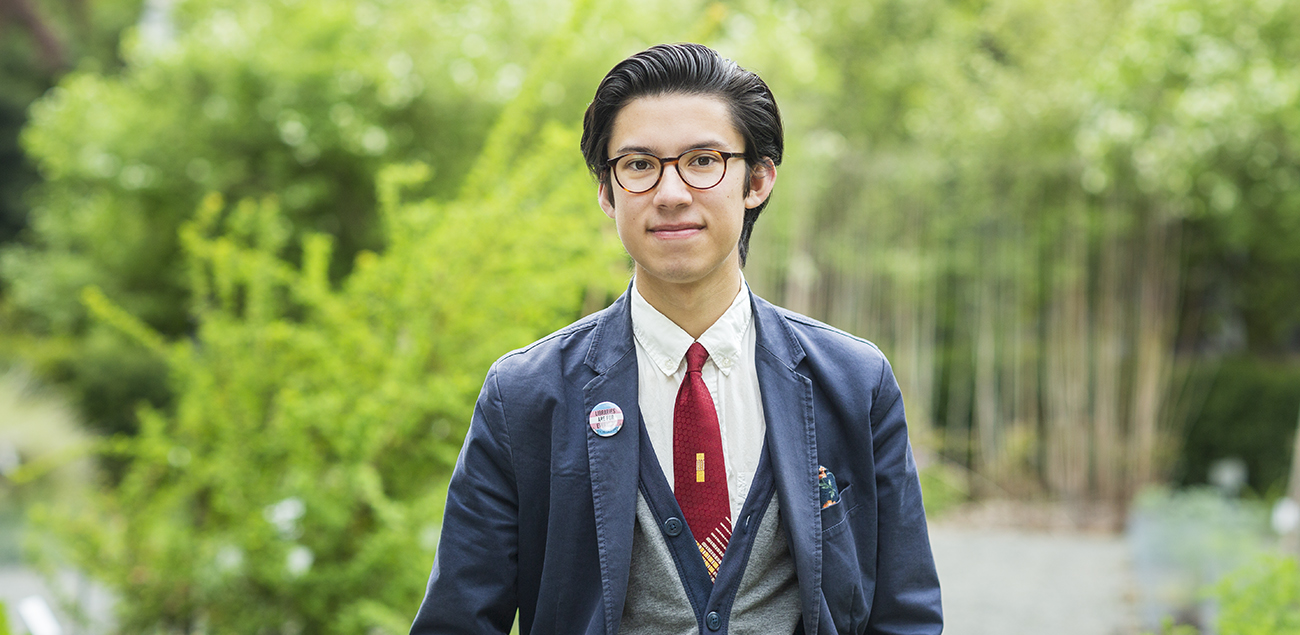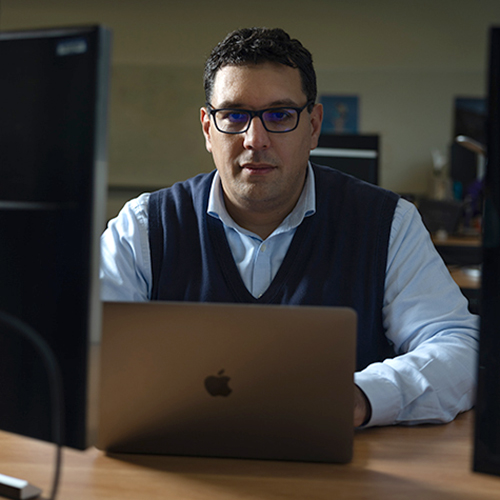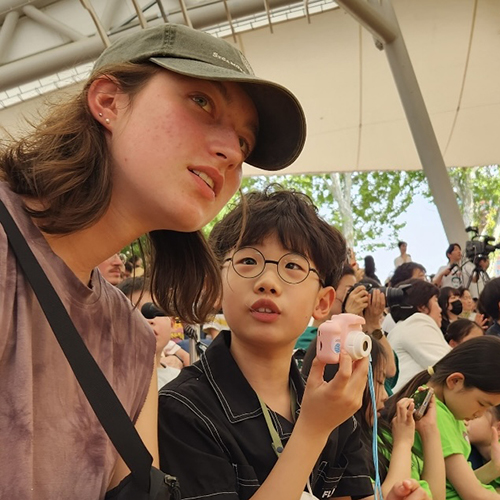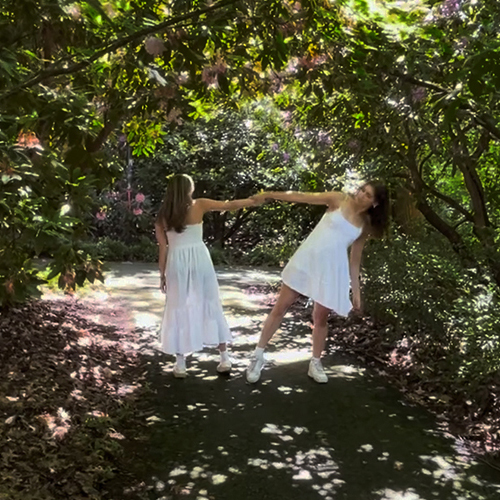Ask Seattle-born Elijah Pasco to speak with a Scottish accent, and he’ll want more details. “What part of Scotland?” he’s likely to ask. “What socioeconomic status?”
Pasco, who graduates from the UW this spring with majors in linguistics and drama, has been fascinated by language since childhood, inspired by a polyglot grandfather who “can go from Japanese to Chinook jargon to Old English and back to English.” Since middle school, Pasco has loved theater as well. Through the study of dialects, Pasco has combined his interests.

High school presented Pasco’s first opportunity to work with dialects, when several scenes of a school play took place in the Orkney Islands, the northernmost islands of Scotland. Aware that Orkney Islanders speak with a different dialect than the stereotypical Edinburgh accent, Pasco begged the director to let him coach the actors in proper Orkney dialect.
The director agreed, and Pasco spent many hours researching Scottish dialects. He visited linguistic and language preservation websites, listened to recordings, and transcribed a documentary featuring people from the Orkney Islands. “I put in way more effort than what was expected of me, but I loved every moment of it,” he says.
Dialect Opportunities at UW
At the UW, Pasco continued with dialect work. His sophomore year, he had a small non-speaking role in The Incident at Vichy, a School of Drama production featuring graduate actors in the Professional Actor Training Program. Wanting to be more useful, and having studied German for six years, Pasco reached out to Bridget Connors, the dialect coach for the production. Connors, associate teaching professor for voice, speech, and dialects in the School of Drama, welcomed Pasco to join her in working with two of the play’s actors — one in the role of an Austrian prince, the other playing a German Nazi.
Given the sensitive content of the play, Pasco considered more than dialect in coaching the actor playing a Nazi. “It’s easy to fall into the trope of that very nasal high-pitched evil Nazi voice,” says Pasco. “That is something we wanted to avoid, because when you fall into a trope, it separates the audience from the fact that the character is human. I think the scariness and fear come from understanding that full-fledged humans are capable of doing horrific things. So we worked with the actor on bringing the sound down into his chest. The accent is more subtle but still sounds German.”

Pasco had another opportunity to work with actors on dialects in an Undergraduate Theatre Society (UTS) production set during the last witch trial in Scotland in the 1640s. UTS productions are entirely student run, so this time Pasco was on his own. And it wasn’t two characters speaking in dialect — it was the entire cast.
Along with researching regional dialects, Pasco studied various methods for teaching a dialect and the philosophy behind each approach. He considered how technical to be with the actors in his explanations, and whether metaphorical language would be more effective. “I was exploring all these different materials we had in the drama library about teaching a dialect, as well as contemporary methods that are still emerging,” Pasco says.
A Thesis Comes to Life
That research has since grown into a senior thesis on the history of dialect coaching methods and their impact on current approaches. The topic spans Pasco’s two majors, so he has two thesis advisers: Connors in the School of Drama, and Alicia Wassink, associate professor in the Department of Linguistics.
Though Pasco originally envisioned presenting his research in a staged performance, the pandemic forced a change in plans. Instead he created a podcast that combines content from his written thesis with excerpts from antiquated texts on dialect and vocal coaching, some dating back to the early 1900s. “I wanted to make it a little more fun than just a paper,” he says.
Recognizing Pasco’s contribution to the School of Drama, the School awarded him the Glenn Hughes Scholarship last spring. “Being chosen for that, I felt really appreciated,” Pasco says. “It was confirmation that my work was important not just to me, but to the School of Drama as well.”

While he’s busy finishing up both of his majors and his senior thesis, Pasco also works as cartoon and illustrations editor for The Daily. He began at The Daily his freshman year, first as a staff illustrator and then as the Campus Sketcher. Early on, he provided brief captions to accompany his sketches of campus scenes, but “eventually the captions grew longer and longer, until I had a full-fledged column,” he says.
Looking back at all he’s done during his time at the University, Pasco has no regrets — though there is one decision he admits wasn’t ideal.
“Linguistics requires that majors take two languages, including one non-Indo-European language,” he says. “I made the mistake of thinking I could get those requirements out of the way by taking both German and Arabic my freshman year. For two quarters, the classes were back-to-back in the same building. Going from Arabic at 9:30 am to German at 10:30 across the hall in Denny Hall — I would not recommend it.”
He laughs remembering those mornings. “I honestly don’t know how I survived.”
More Stories

A Statistician Weighs in on AI
Statistics professor Zaid Harchaoui, working at the intersection of statistics and computing, explores what AI models do well, where they fall short, and why.

Finding Family in Korea Through Language & Plants
Through her love of languages and plants — and some serendipity — UW junior Katie Ruesink connected with a Korean family while studying in Seoul.

Dancing Across Campus
For the dance course "Activating Space," students danced in public spaces across the University of Washington's Seattle campus this spring.